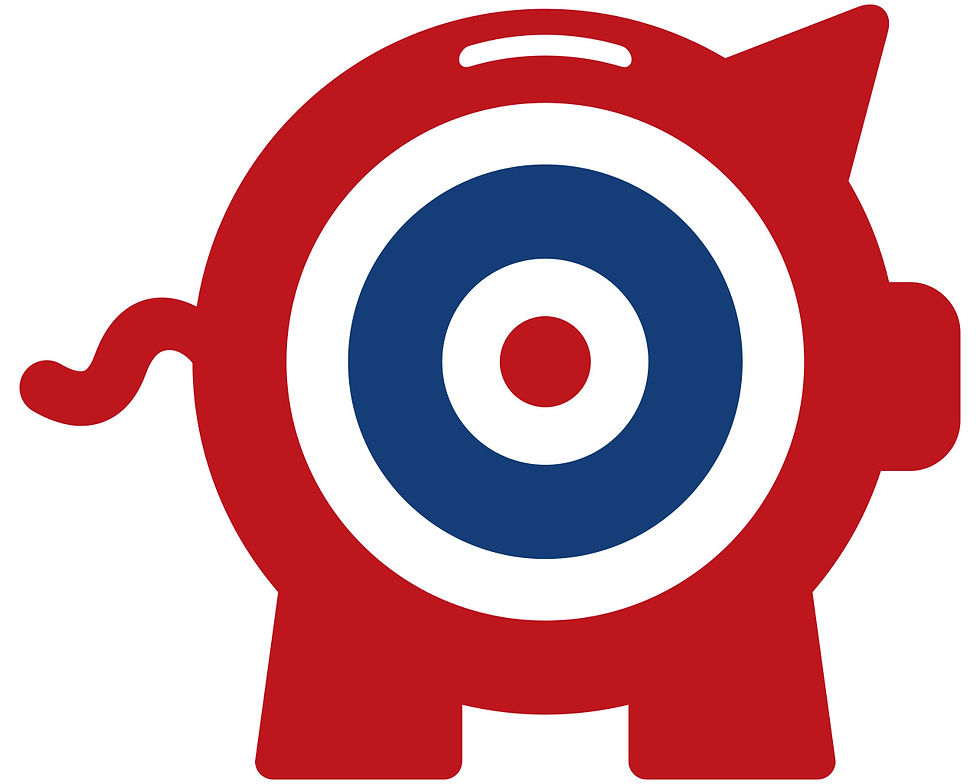How Trump’s Tariffs Could Impact Your Company’s Value (And Why You Need a Valuation Now)
- Evo-Valuations

- Apr 4, 2025
- 4 min read
Updated: May 16, 2025

Trade policies might seem like something only politicians and economists worry about, but if you’re a business owner, new tariffs could seriously affect your company’s value. With Donald Trump proposing sweeping new trade barriers—including a 10% universal tariff on imports and even higher rates on certain goods—businesses that rely on global supply chains or export markets could be in for a rough ride.
In this blog, we’ll break down:
✅ How tariffs increase costs for businesses (even if you don’t import directly).
✅ Why trade barriers hurt profitability and valuation.
✅ How Evo-Valuations can help you assess your company’s worth in this uncertain climate.
Let’s dive in!
1. Tariffs = Higher Costs (And Lower Profits)
Trump’s proposed tariffs—like the 10% across-the-board import tax—would make foreign goods more expensive. But even if you don’t import directly, your suppliers might, meaning:
Higher input costs (raw materials, parts, equipment).
Reduced profit margins (unless you raise prices, which risks losing customers).
Supply chain disruptions (if foreign suppliers push back or shift markets).
As Politico’s article points out, tariffs don’t just punish foreign companies—they hurt U.S. businesses that rely on global trade. If your costs rise but revenue doesn’t, your business valuation takes a hit.
Why This Matters for Valuation
Buyers and investors look at profitability. If tariffs squeeze your margins, your company could be worth less than before—even if sales stay strong. That’s why it’s crucial to get a valuation now (before new policies kick in) so you know where you stand.
2. Trade Wars = Less Market Stability
History shows that tariffs often lead to retaliation. When Trump imposed steel tariffs in 2018, the EU hit back with taxes on American whiskey, motorcycles, and jeans. If another trade war erupts:
Exporters could lose key markets (if other countries tax U.S. goods).
Uncertainty scares investors (volatility = lower valuations).
Long-term contracts may be at risk (if partners fear instability).
A business that was thriving in a free-trade environment might suddenly look riskier to buyers, dropping its value.
How Evo-Valuations Helps
A professional valuation identifies vulnerabilities before they hurt your bottom line. If tariffs threaten your industry, we can help you:
✔ Adjust financial forecasts to reflect new costs.
✔ Explore diversification strategies (alternative suppliers, new markets).
✔ Lock in your current valuation before trade policies change.
3. Domestic Competition Gets Tougher
Tariffs are supposed to help U.S. manufacturers, but they can also distort the market. If your competitors get tariff protections (e.g., cheaper local steel), but your business relies on imports, you’re at a disadvantage. Meanwhile:
Small businesses suffer most (they can’t absorb cost hikes as easily as big corporations).
Price wars may erupt (if everyone tries to undercut each other).
Innovation slows (because companies focus on survival, not growth).
All of this can drag down your company’s valuation—unless you adapt fast.
Why Annual Valuations Are Essential
Trade policies change fast. An annual valuation from Evo-Valuations ensures you’re always working with up-to-date numbers, not guesses. We track:
📉 Profitability trends (are tariffs eating into margins?).
📈 Market position (are competitors gaining an edge?).
💰 Realistic exit strategies (should you sell now or wait?).
4. Consumer Prices Rise = Demand Could Drop
When businesses pass tariff costs to customers, people buy less. If your company sells consumer goods, this could mean:
Fewer sales (if shoppers cut back).
Pressure to absorb costs (hurting profits).
Brand loyalty tested (if cheaper alternatives emerge).
Lower demand = lower revenue = lower business value.
How Evo-Valuations Measures Impact
We don’t just look at past performance—we model different scenarios, like:
🔹 "What if tariffs increase our costs by 15%?"
🔹 "What if our biggest export market retaliates?"
🔹 "How can we pivot to minimize damage?"
This helps you make smart decisions before it’s too late.
5. The Bigger Picture: Uncertainty Kills Valuations
Even if tariffs don’t directly hit your business, market uncertainty can. Investors and buyers hate unpredictability, which means:
Deals get delayed (nobody wants to overpay in a shaky market).
Financing dries up (banks get cautious).
Business values stagnate (until the dust settles).
Why You Need a Valuation NOW
If Trump’s tariffs become reality, your company’s value could shift overnight. Getting a professional valuation today means:
✅ You know your baseline (no surprises later).
✅ You can plan ahead (restructure, diversify, or even sell at peak value).
✅ You stay ahead of competitors (who might be caught off guard).
Final Thoughts: Don’t Wait—Get Valued!
Trade policies can change fast, and your business’s value shouldn’t be left to chance. Whether tariffs impact you directly or just create market chaos, knowing your company’s worth is power.
That’s where Evo-Valuations comes in. We provide accurate, actionable valuations so you can:
✔ Protect your business from trade risks.
✔ Make strategic moves before competitors do.
✔ Maximize your value in any economic climate.
Ready to See Where You Stand?
Don’t let tariffs catch you off guard. Get a valuation today and stay ahead of the game!
Got questions? Drop them below—we’d love to help! 🚀




Comments